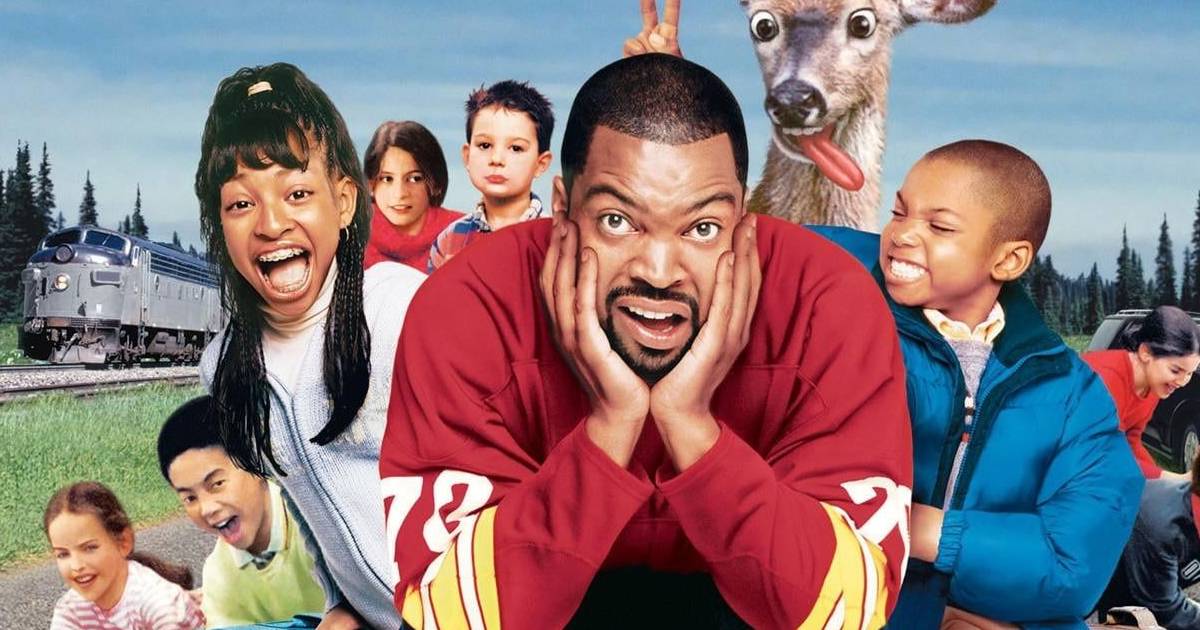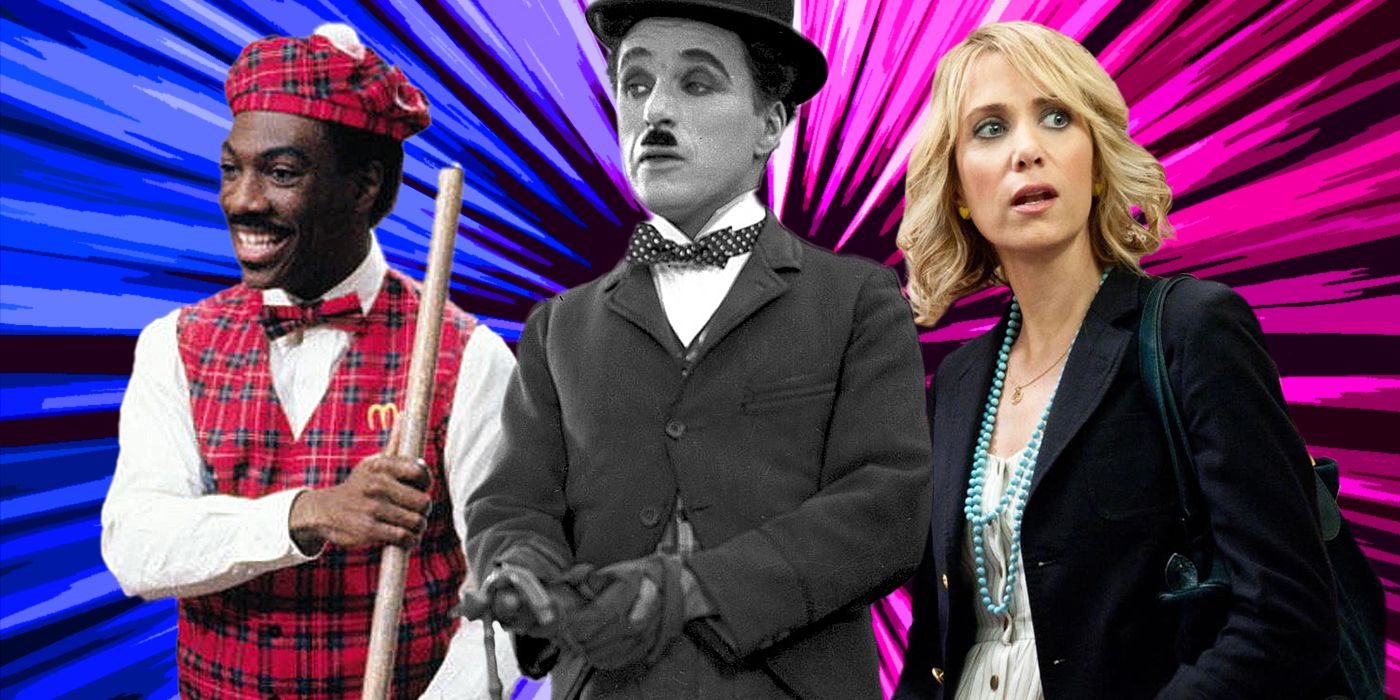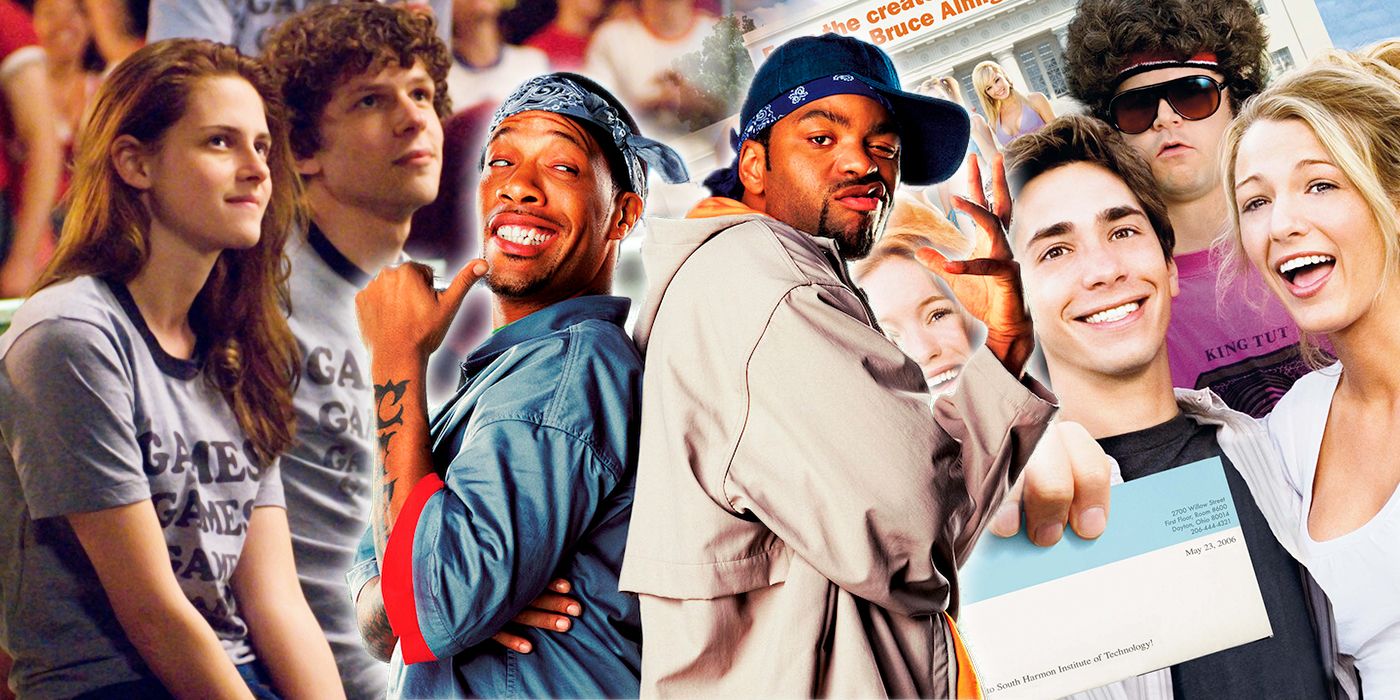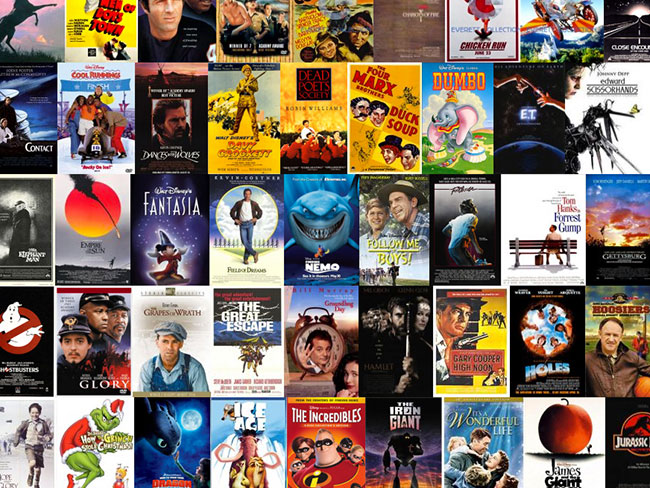The Golden Age of 2000s Comedy Movies
The 2000s heralded a renaissance in the realm of comedy, bringing forth a slew of films that redefined the genre. This decade’s comedy landscape was a mélange of slapstick, satire, romantic comedy, and dark humor, all of which have left an indelible mark on pop culture. With innovative directors, charismatic actors, and original screenwriting, the 2000s gave rise to some of the most beloved comedy films of all time.

The Rise of the Frat Pack
A New Era of Ensemble Comedy
The 2000s saw the emergence of a group of comedic actors known as the “Frat Pack.” This unofficial troupe, including Ben Stiller, Owen Wilson, Vince Vaughn, Will Ferrell, Steve Carell, and Jack Black, dominated the decade with their distinct brand of humor. Films like Zoolander (2001), Old School (2003), and Anchorman: The Legend of Ron Burgundy (2004) encapsulated the irreverent, often absurdist humor that defined much of the era.
The Frat Pack movies often relied on the chemistry between these actors, with improvisation playing a significant role in creating memorable scenes. Anchorman, for instance, is lauded for its off-the-cuff exchanges, which lent the film a spontaneous, unpredictable quality. The ensemble nature of these films allowed each actor to shine while contributing to a greater comedic synergy, resulting in movies that are as much about the group dynamic as they are about the plot.
The Impact of Ben Stiller and Will Ferrell
Ben Stiller and Will Ferrell, in particular, were pivotal in shaping the comedic tone of the 2000s. Stiller’s portrayal of exaggeratedly self-absorbed characters, such as the titular male model in Zoolander, became a hallmark of the decade’s humor. His films often satirized contemporary culture, using outlandish premises to critique societal norms.
Will Ferrell, on the other hand, brought an unmatched level of absurdity to his roles. His performances in films like Elf (2003) and Talladega Nights: The Ballad of Ricky Bobby (2006) showcased his ability to fully commit to the most ludicrous characters, turning them into icons of the genre. Ferrell’s comedic style, characterized by exaggerated physicality and a willingness to embrace the ridiculous, made him one of the most recognizable faces of 2000s comedy.
The Surge of Raunchy Humor
The Judd Apatow Phenomenon
Judd Apatow emerged as a dominant force in the 2000s, blending raunchy humor with heartwarming narratives. His films, such as The 40-Year-Old Virgin (2005) and Knocked Up (2007), struck a balance between crude jokes and genuine emotional depth, a combination that resonated with audiences. Apatow’s knack for crafting relatable characters, often struggling with adulthood, endeared his films to a generation navigating similar life challenges.
Apatow’s influence extended beyond his directorial efforts. He played a crucial role in producing and writing for other successful comedies of the decade, helping to launch the careers of actors like Seth Rogen and Jason Segel. His films often explored the complexities of relationships, friendships, and personal growth, all while delivering sharp, often raunchy, humor.
The Evolution of Teen Comedy
Teen comedies also experienced a transformation during the 2000s. While the genre had always been popular, the decade saw a shift towards more self-aware, sometimes edgier content. Superbad (2007), produced by Apatow and starring Michael Cera and Jonah Hill, became an instant classic by capturing the awkwardness and hilarity of adolescence. The film’s dialogue, full of rapid-fire exchanges and crude humor, became emblematic of the decade’s approach to teen comedy.
Another notable entry in this subgenre was Mean Girls (2004), written by Tina Fey. While not as raunchy as other comedies of the time, Mean Girls used sharp wit to satirize high school culture. Its exploration of social hierarchies and the absurdities of teenage life struck a chord with audiences, making it one of the most quotable films of the decade.
Romantic Comedies with a Twist
Subverting Expectations
The 2000s also saw the evolution of the romantic comedy. While the genre had been well-established, filmmakers began to subvert its tropes, creating films that were both familiar and fresh. 500 Days of Summer (2009) epitomized this shift, presenting a non-linear narrative that deconstructed the idea of “happily ever after.” The film’s realistic portrayal of relationships, coupled with its unique storytelling structure, set it apart from more formulaic rom-coms.
Films like Bridget Jones’s Diary (2001) also redefined the genre by introducing flawed, relatable protagonists who resonated with audiences. Bridget Jones, portrayed by Renée Zellweger, was far from the idealized heroines of earlier romantic comedies. Her insecurities and mishaps made her all the more endearing, signaling a move towards more grounded, character-driven stories in the rom-com genre.
The British Invasion
British comedies also made a significant impact during the 2000s. Films such as Love Actually (2003) and Shaun of the Dead (2004) offered a distinct blend of humor, combining British wit with universal themes. Love Actually became a staple of the romantic comedy genre, while Shaun of the Dead cleverly mixed comedy with horror, showcasing the versatility of British filmmakers.
Conclusion
The 2000s was a decade of innovation and diversity in comedy films. From the irreverent humor of the Frat Pack to the heartfelt narratives of Judd Apatow, this era produced a wealth of films that continue to entertain and inspire. The blend of raunchy humor, satirical wit, and genre subversion ensured that the comedies of the 2000s left a lasting legacy on the cinematic landscape.




